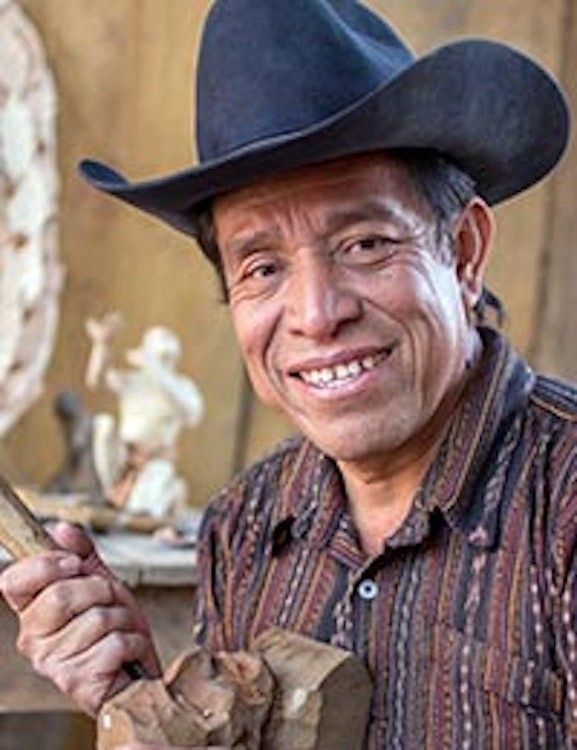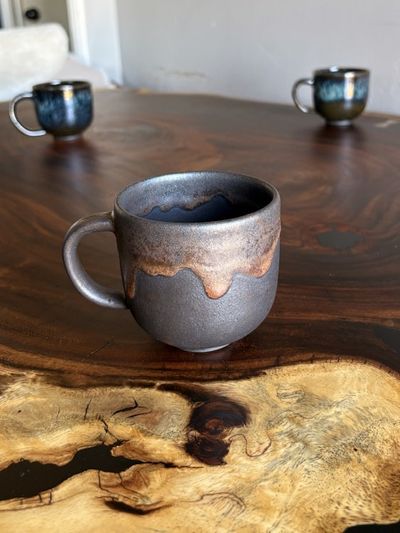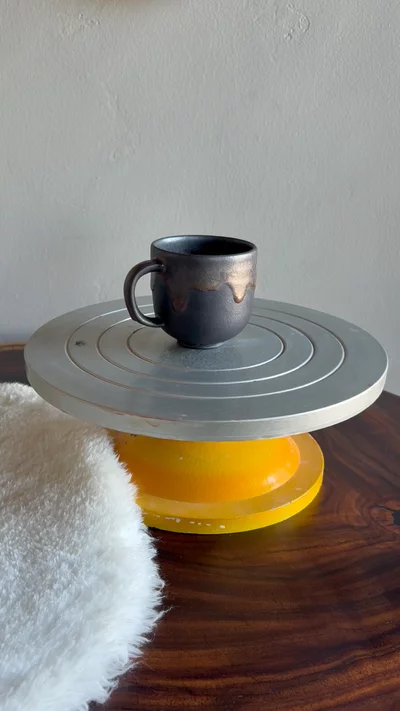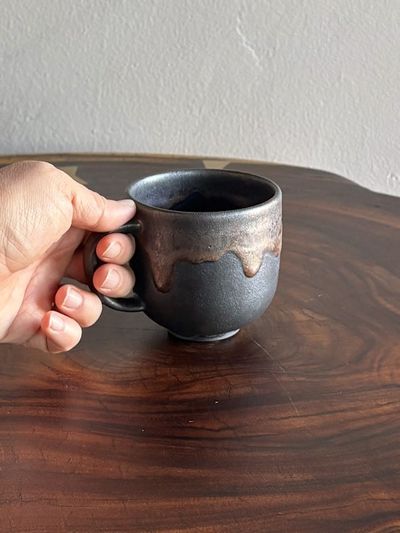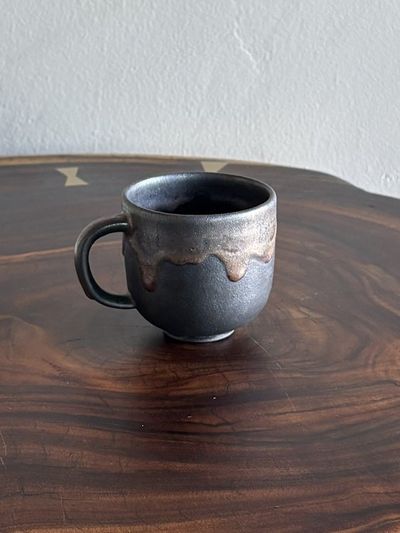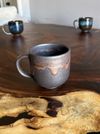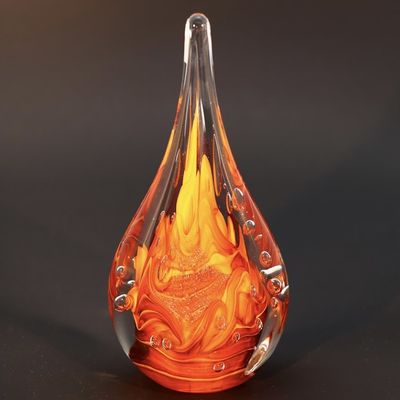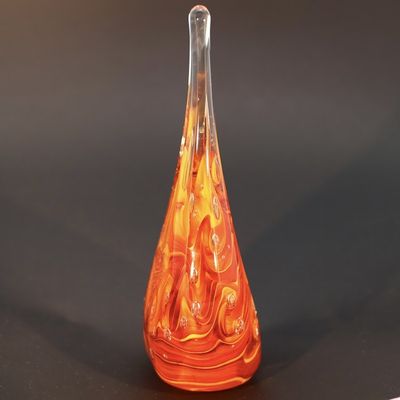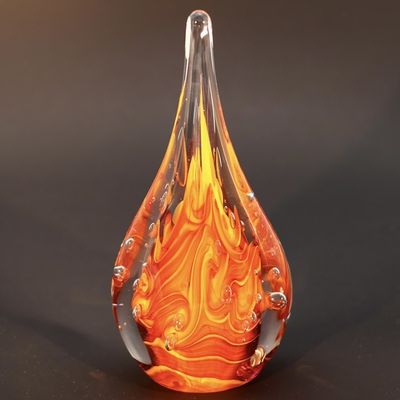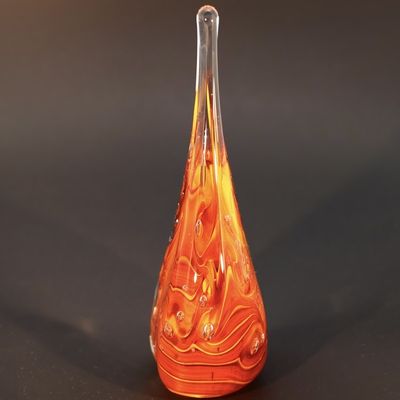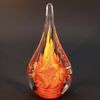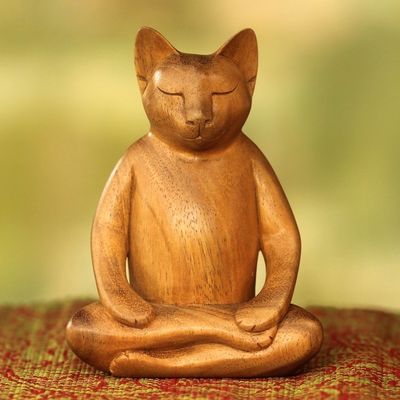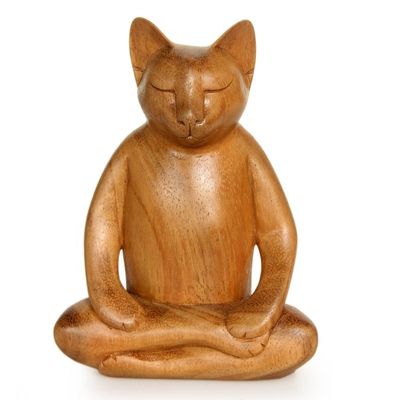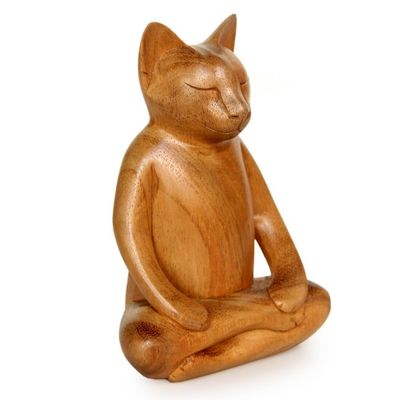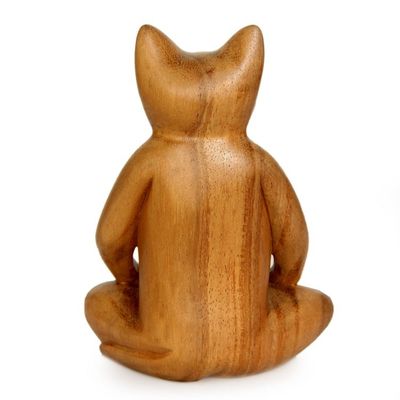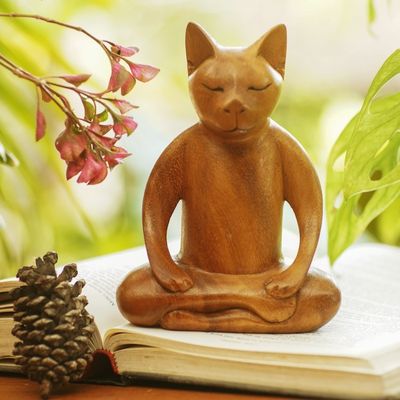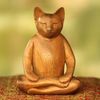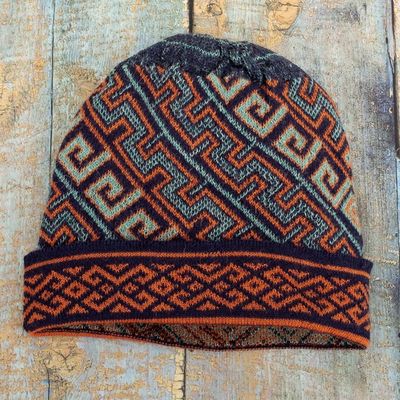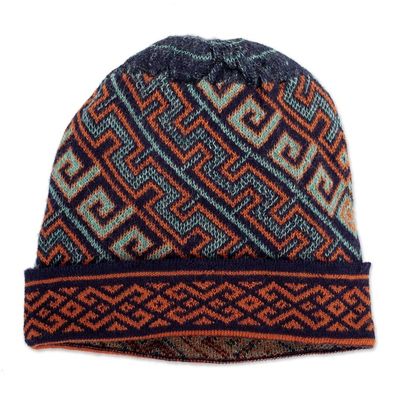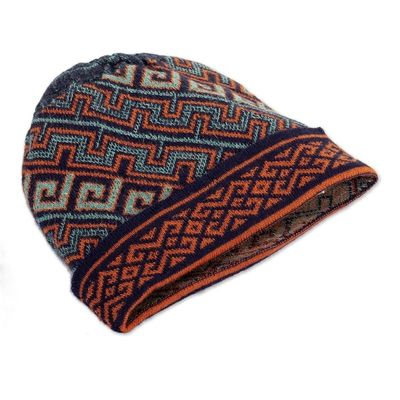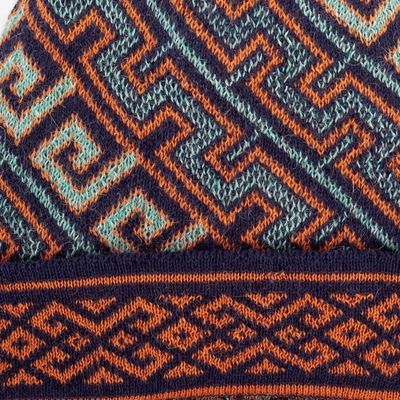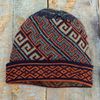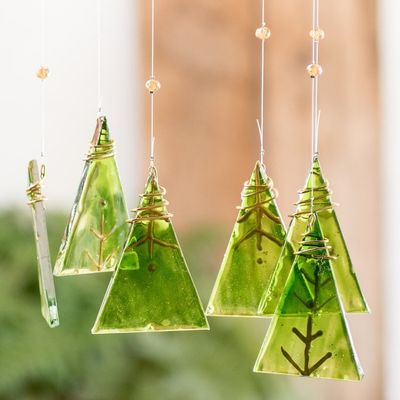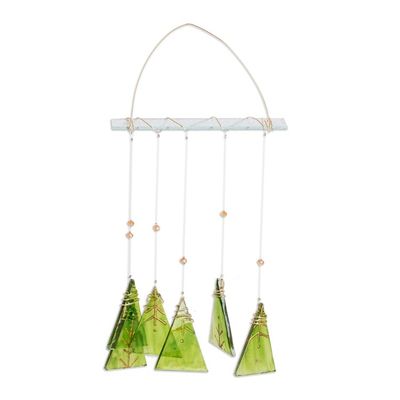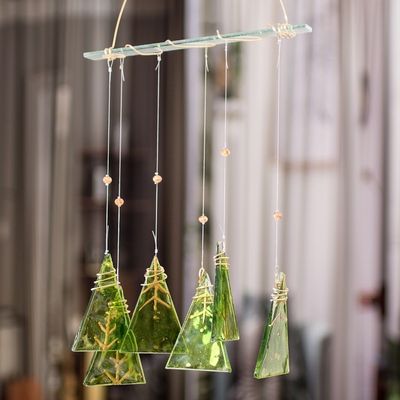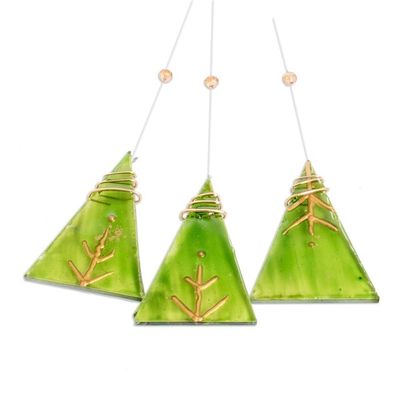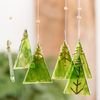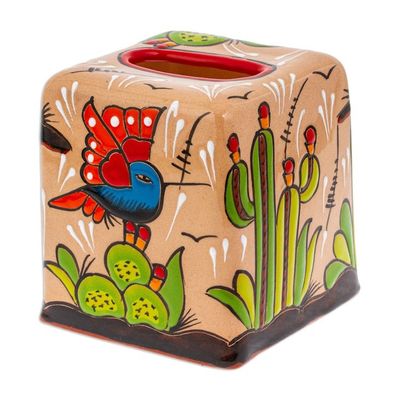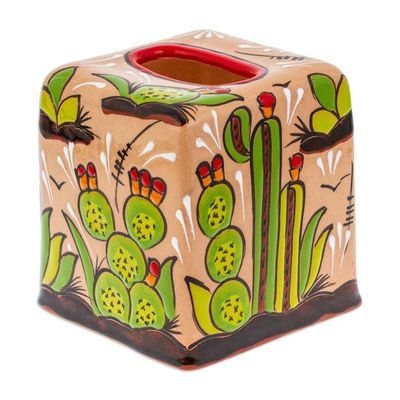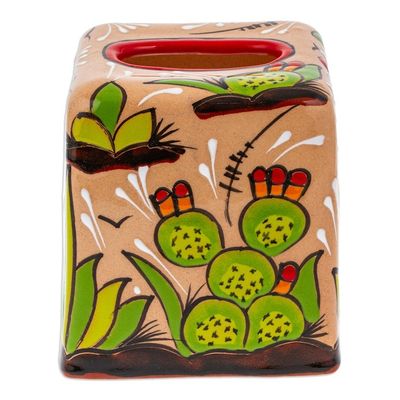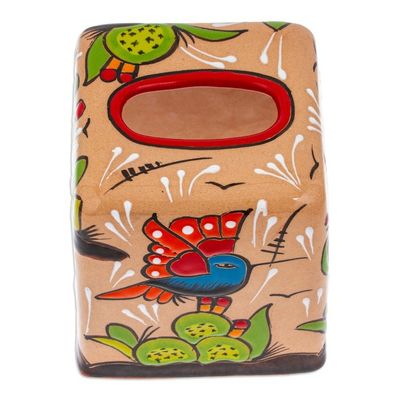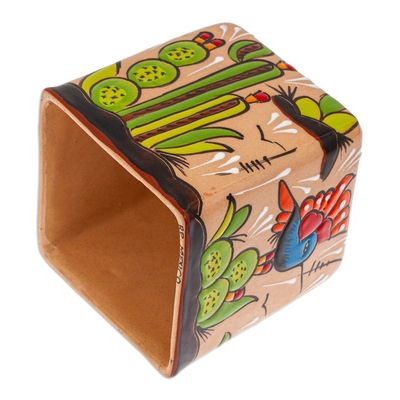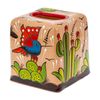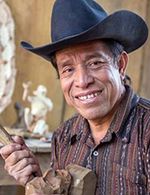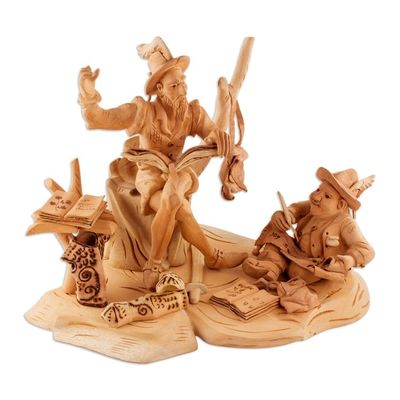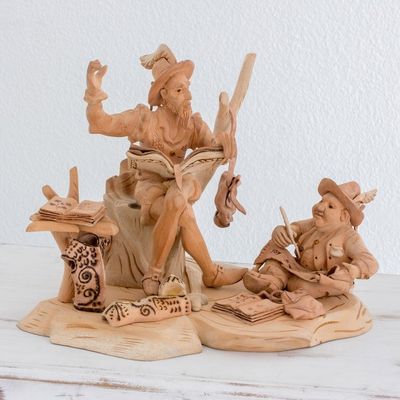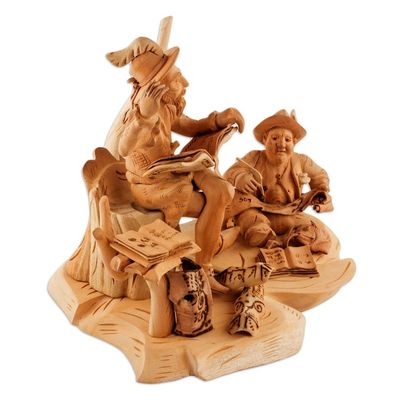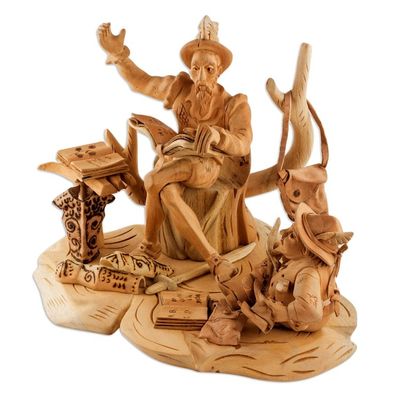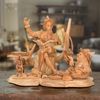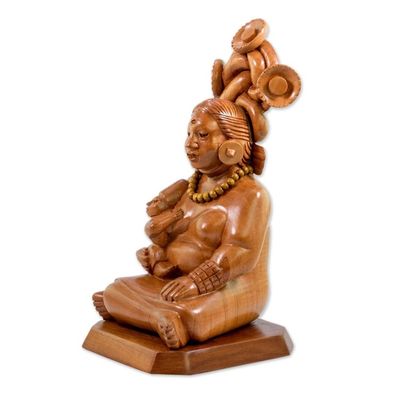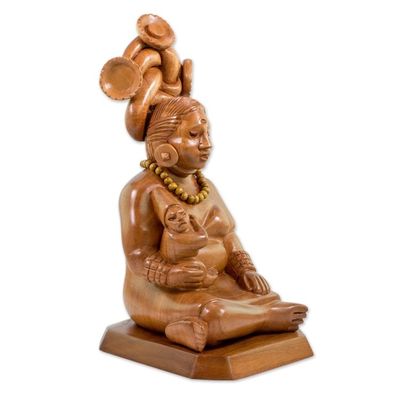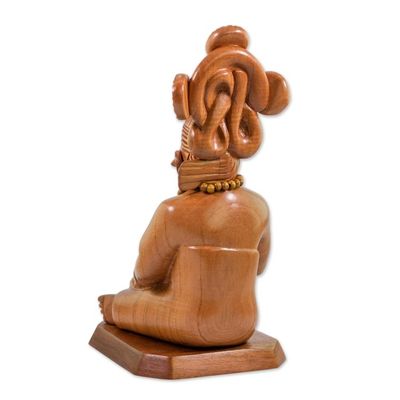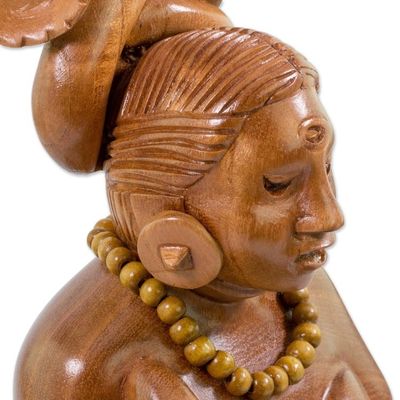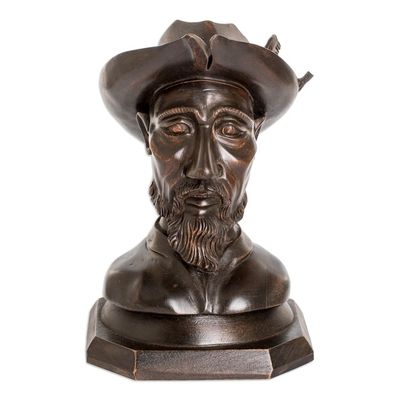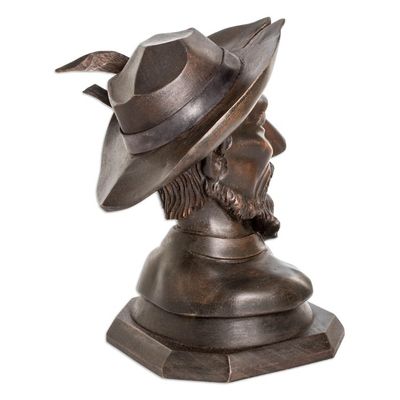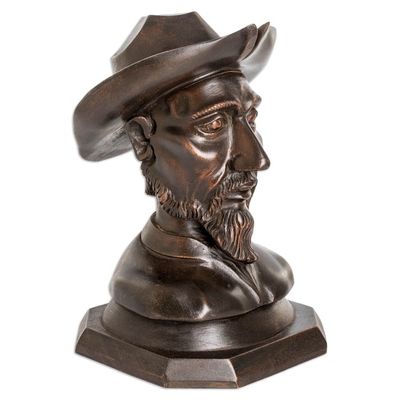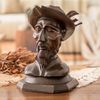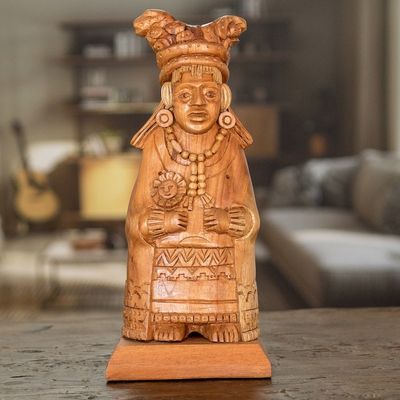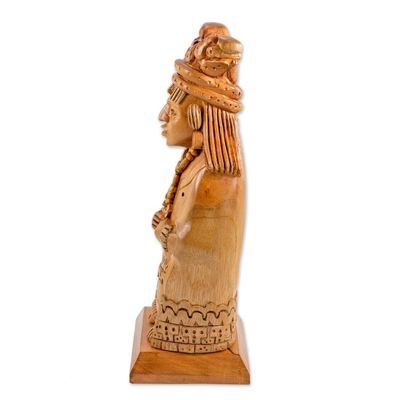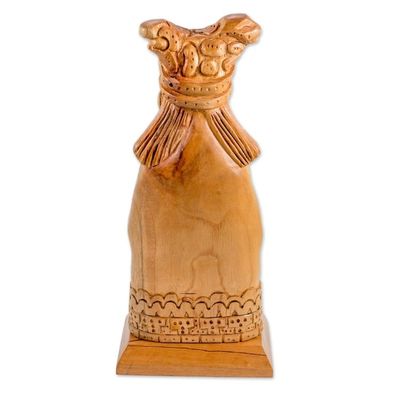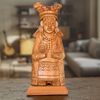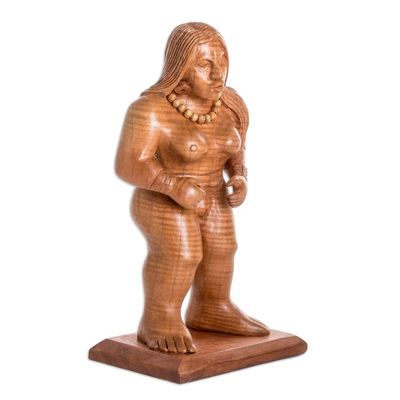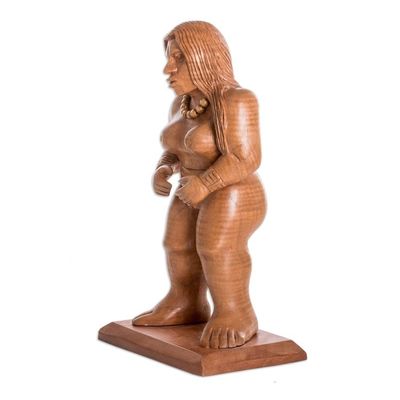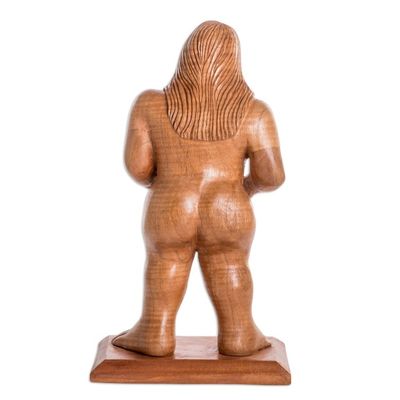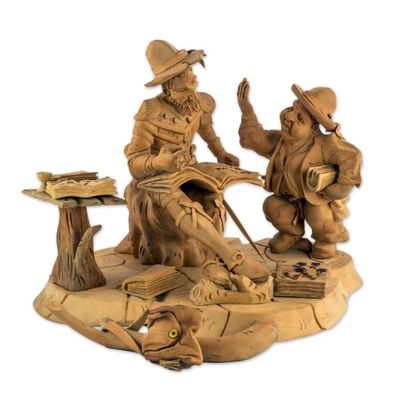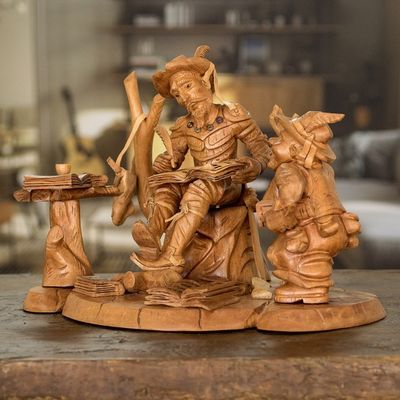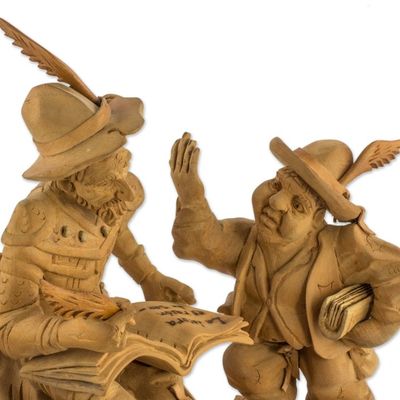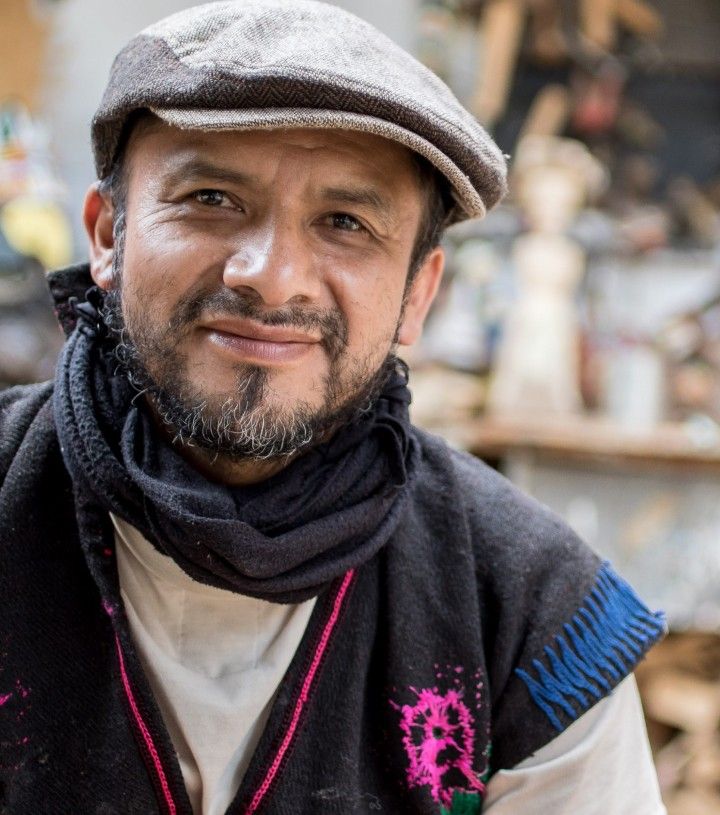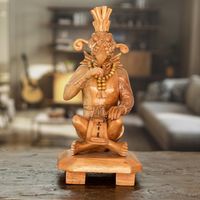
Maya Cedar Wood Replica Sculpture of the Palenque Bird Man 'Maya Bird Man from Palenque' Item ID: 2671777815
$607.99Currently not available
We're sorry but it looks like we're late on getting more items for you. Please check back in a few days.
This is your own listing item.
100% Happiness Guaranteed!
![]() Shop with Confidence
Shop with Confidence
![]() Easy 30 day returns!
Easy 30 day returns!
Other favorites
View moreMeet the maker
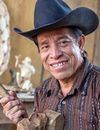
Nicolas Chavez Sojuel hand-carved wood sculpures
"I was born in Cantón Tzanjuyú, a village by Atitlán Lake. We are seven siblings and, painfully, we lived together with our parents for only short period of time because Mom got gravely ill and Dad dedicated all of his time to looking after her. We didn't have much money and there was no one else to look after us, so we were each placed with good families who took charge of our welfare.
"I went to live with Juan Sisay, regarded as Santiago Atitlán's 'first fine arts painter.' He put a roof over my head and fed me. My siblings joined other families – it was the only solution so we could eat and be properly cared for.
"My older brother Juan and I learned to carve and the little money we made we gave it to dad so he could buy mom's medicines.
"Juan Sisay taught me to appreciate art and to live from it. Dad, one of the first wood carvers in our village, taught me to carve. And since Juan and I were interested in learning new things all the time, we would befriend tourists who worked in other art forms so they could teach us.
"When I was 12 years old I started to work assisting Father Rother at our village's church. He was an American priest from Oklahoma that had driven his Chevrolet 2,000 miles from Oklahoma to Guatemala to dedicate his life to helping our people. I assisted him with general church organization and also cleaned and made sure everything was in order. He'd pay me enough to eat and help at home. When I was 15 years old, my brother started carving the church's altar and Father Rother said to me, 'If you like to carve and want to practice, you can help your brother and I can pay you.'
"He didn't need to tell me twice – next morning I was already helping my brother with the carving. The Father paid me 17 Quetzales per month and I was happy. This was my first art work, of which I am still proud. And, it is still there, in our village's church.
"From there I started showing my work and selling to tourists. From us seven siblings, only Juan and I carve, making Dad immensely happy because we are preserving the family legacy he started. He taught us a lot despite everything he had to do to caring for Mom. Seeing how he struggled, my siblings and I helped out by washing their clothes, cooking, and doing the housework.
"During the 1970s, Guatemala was engulfed in an armed conflict, but in our village we enjoyed a relative calm. However in 1977, the army arrived in Santiago with information of guerrilla cells living here, and they believed good Father Rother was their leader. He had nothing to do with them, they just thought he did because he helped out a lot of people and no one knew where the money was coming from.
"Actually the money was coming from donations, which he used to invest in sponsoring vocational workshops where people learned to weave, carve, read and write. He also helped the elderly, the sick and the orphans.
"The army then said everyone working with him was a revolutionary and so they began to persecute Father Rother and his collaborators.
"I was still working at the parish and those were difficult times, of great fear, of staying indoors and of looking after each other. On July 28 1981, they tortured and killed Father Rother at the rectory. Since then, everyone in the village refers to him as both Father Francisco, and as the Good Shepherd. His body was sent back to his family in Oklahoma to be buried, but he was so special to us here that they let us keep his heart, which is enshrined in our church, under the altar my brother and I carved, with a mason jar of his blood.
"By the time Father Rother was assassinated, there were already many children made orphans because their families had been killed too. I took in several youths between the ages of 10-12. A week after the assassination, I started being persecuted too. Soldiers would come knocking at my door at night.
"I went to live with Juan Sisay, regarded as Santiago Atitlán's 'first fine arts painter.' He put a roof over my head and fed me. My siblings joined other families – it was the only solution so we could eat and be properly cared for.
"My older brother Juan and I learned to carve and the little money we made we gave it to dad so he could buy mom's medicines.
"Juan Sisay taught me to appreciate art and to live from it. Dad, one of the first wood carvers in our village, taught me to carve. And since Juan and I were interested in learning new things all the time, we would befriend tourists who worked in other art forms so they could teach us.
"When I was 12 years old I started to work assisting Father Rother at our village's church. He was an American priest from Oklahoma that had driven his Chevrolet 2,000 miles from Oklahoma to Guatemala to dedicate his life to helping our people. I assisted him with general church organization and also cleaned and made sure everything was in order. He'd pay me enough to eat and help at home. When I was 15 years old, my brother started carving the church's altar and Father Rother said to me, 'If you like to carve and want to practice, you can help your brother and I can pay you.'
"He didn't need to tell me twice – next morning I was already helping my brother with the carving. The Father paid me 17 Quetzales per month and I was happy. This was my first art work, of which I am still proud. And, it is still there, in our village's church.
"From there I started showing my work and selling to tourists. From us seven siblings, only Juan and I carve, making Dad immensely happy because we are preserving the family legacy he started. He taught us a lot despite everything he had to do to caring for Mom. Seeing how he struggled, my siblings and I helped out by washing their clothes, cooking, and doing the housework.
"During the 1970s, Guatemala was engulfed in an armed conflict, but in our village we enjoyed a relative calm. However in 1977, the army arrived in Santiago with information of guerrilla cells living here, and they believed good Father Rother was their leader. He had nothing to do with them, they just thought he did because he helped out a lot of people and no one knew where the money was coming from.
"Actually the money was coming from donations, which he used to invest in sponsoring vocational workshops where people learned to weave, carve, read and write. He also helped the elderly, the sick and the orphans.
"The army then said everyone working with him was a revolutionary and so they began to persecute Father Rother and his collaborators.
"I was still working at the parish and those were difficult times, of great fear, of staying indoors and of looking after each other. On July 28 1981, they tortured and killed Father Rother at the rectory. Since then, everyone in the village refers to him as both Father Francisco, and as the Good Shepherd. His body was sent back to his family in Oklahoma to be buried, but he was so special to us here that they let us keep his heart, which is enshrined in our church, under the altar my brother and I carved, with a mason jar of his blood.
"By the time Father Rother was assassinated, there were already many children made orphans because their families had been killed too. I took in several youths between the ages of 10-12. A week after the assassination, I started being persecuted too. Soldiers would come knocking at my door at night.

Central America Fulfillment Hub
Explore Central America. Rich rainforests and active volcanoes shelter the vestiges of the Mayan civilization that lives on in the languages and the arts of Central America. You'll discover the weaving traditions recorded on the backstrap looms, the glyphs and geometry that define the jewelry and pottery, and the vibrantly-painted folk art statues and masks among all the unique, handcrafted artisan treasures in our Central America Collection.






